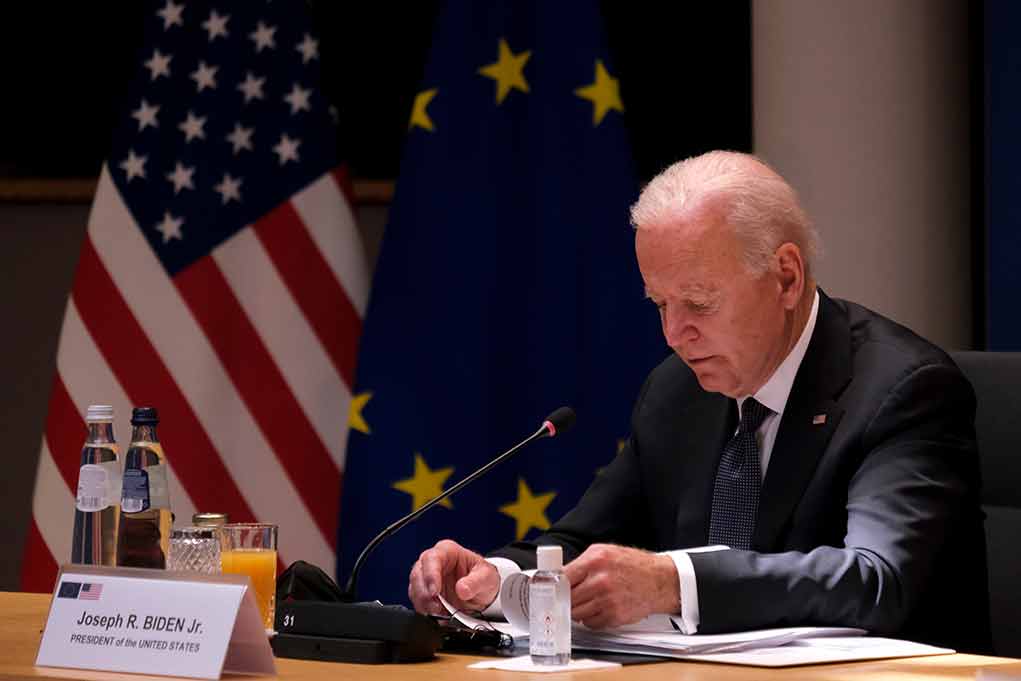Biden’s Last Minute Pardons: The Final Stain on his Legacy

President Biden’s controversial pre-emptive pardons for Fauci, Milley, and others spark debate over presidential power and potential future repercussions.
Top Takeaways
- Biden issued pre-emptive pardons for Dr. Fauci, Gen. Milley, and Jan. 6 committee members
- Pardons aim to protect against potential “revenge” by the incoming Trump administration
- The move sets a precedent for broader use of pardons by future presidents
- Hunter Biden’s inclusion in the pardons has drawn significant criticism
- The pardons do not imply wrongdoing or admission of guilt, according to Biden
Biden’s Controversial Pardons: A Pre-emptive Strike
In a move that has sent shockwaves through Washington, President Joe Biden has issued a series of pre-emptive pardons in the final hours of his presidency. The pardons, which include high-profile figures such as Dr. Anthony Fauci and retired Gen. Mark Milley, have ignited a fierce debate about the use of presidential clemency and its potential long-term implications for American politics.
The pardons extend to members of the House committee that investigated the January 6 Capitol riot, as well as police officers who testified about the events. Condemnation of Biden’s actions began almost immediately.
“The guy who claimed he would ‘protect norms’ continues to bulldoze them and the Constitution until the bitter end. Biden truly is one of the worst Presidents in American history and will only be remembered as the guy between Trump’s two terms,” Senator Eric Schmitt (R-Mo) wrote on X.
Biden’s legacy is pure corruption. https://t.co/ZX4iscH6tb
— Dave Smith (@ComicDaveSmith) January 20, 2025
Protecting Public Servants or Overreach of Power?
Biden has defended his decision, emphasizing that the pardons should not be interpreted as an admission of guilt or wrongdoing by any of the individuals involved. In a statement, the President said:
“The issuance of these pardons should not be mistaken as an acknowledgment that any individual engaged in any wrongdoing, nor should acceptance be misconstrued as an admission of guilt for any offense. Our nation owes these public servants a debt of gratitude for their tireless commitment to our country.”
However, critics argue that this move sets a dangerous precedent for future administrations. There are concerns that presidents might use pardons to encourage allies to act without fear of legal repercussions, potentially undermining the rule of law.
High-Profile Beneficiaries React
Dr. Anthony Fauci, who faced intense criticism from the right for his role in shaping COVID-19 policies, expressed relief at the pardon. He stated:
“I really truly appreciate the action President Biden has taken today on my behalf. I have committed no crime … and there are no possible grounds for any allegation or threat of criminal investigation or prosecution of me.”
Similarly, Gen. Mark Milley, who had previously criticized Trump, voiced gratitude for the pardon, citing a desire to protect his family from potential distress:
“I do not wish to spend whatever remaining time the Lord grants me fighting those who unjustly might seek retribution for perceived slights. I do not want to put my family, my friends, and those with whom I served through the resulting distraction, expense, and anxiety.”
The Hunter Biden Controversy
These recent actions come on the heels of one of the most contentious aspects of Biden’s pardons, the inclusion of his son, Hunter Biden. This decision has drawn sharp criticism from opponents who argue that it undermines ethical standards tied to presidential authority. Critics view this as a protective family move that could significantly damage Biden’s legacy.
Taylor Budowich, Trump’s incoming deputy chief of staff for communications and personnel, said that Biden’s pardons “will go down as the greatest attack on America’s justice system in history.”
“With the stroke of a pen, he unilaterally shielded a group of political cronies from the scales of justice. This is yet another dangerous and unreversible erosion of American norms,” Budowich posted to X.
As the dust settles on this unprecedented use of presidential clemency, questions remain about its long-term impact on American politics and the balance of power. Will this move protect dedicated public servants from potential political retribution, or will it open the door to future abuses of presidential authority? Only time will tell as the nation grapples with the consequences of this controversial decision.
